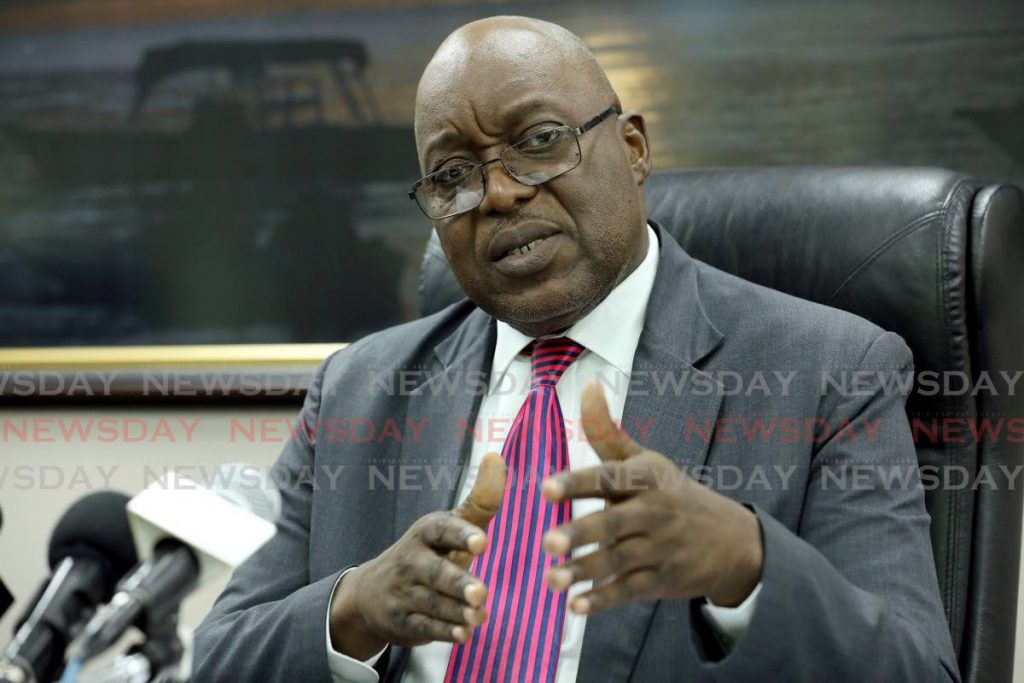Meditate on ganja law

Chief Secretary Kelvin Charles is calling on all Tobagonians to act responsibly when using cannabis after the historic decriminalisation of marijuana.
The Dangerous Drug (Amendment) Act 2019 came into effect on Monday allowing the legal use of 30 grammes of marijuana per person and up to four marijuana plants per person in each household.
The legislation was proclaimed by President Paula-Mae Weekes on Friday after the House of Representatives passed the bill.
Speaking to Newsday on Monday Charles, who was previously silent on the issue, said, “Whilst the marijuana bill has been passed, it is important for persons to recognise that this does not come without restraint whatsoever. Citizens are still expected to operate responsibly where marijuana is concerned and to abide by the laws of TT, regarding its use and farming.”
Charles, hinting he supported decriminalisation instead of legislation, advised marijuana users to understand what the law permits so they do not get into trouble.
"I think the Government made a good decision, especially by ensuring that a measure of control still exists. I urge persons to become familiar with the Bill and the parameters within which it will operate, to avoid running afoul of the law, as a result of ignorance or misinformation."
Minority leader in the Tobago House of Assembly and political leader of the Progressive Democratic Patriots (PDP), Watson Duke told Newsday the marijuana bill was not well thought out by the government.
He said there are still many questions that still have to be answered, especially concerning the release of people convicted for less than 100 grammes.
“There (is) more bad than good coming out of this unholy case.
“From today they are saying some 110 people will be released after this act was proclaimed. That to me requires more transparency because we are yet to know the full status of these people.
“How long they were there (in jail) and the persons they were mingling with? If this is a pardon, what are the criteria? Why not pardoning other persons? We need to find out the criminal nature of these people. What if they are now more schooled in crime from when they went in?”
Duke also questioned whether the pardon would be a presidential pardon, an AG pardon “or a PNM pardon. Who has been left out and who has been included?”
“There are a lot of questions that need to be asked," he said adding that the process “must be based on sound judgment so we can see the sound benefit of this judgment.”
He promised to say more about the act in January.
In Parliament, Attorney General Faris Al-Rawi said the decriminalisation will remove 8,500 cases from the system.
The Prime Minister was also reported saying prisoners who are incarcerated for small quantities will be released and have their records expunged.
He said the law doesn’t permit a mass pardon but “it will be done fairly and in an expeditious way.”
THINGS TO KNOW
The new law is allowing each adult in each home to grow up to four marijuana plants. Users are not allowed to smoke in public or use it while driving a car. You can also have four types of cannabis plants. You can have less than five grammes resin.
You cannot have marijuana on your possession on a school bus or on any premises where children are present. The penalty for breaking this law is a fine of up to 250,000 or five years imprisonment.
You also cannot operate any vehicle, ship or aircraft while under the influence of marijuana. If caught breaking this law, one can be fined up to 250,000 or five years imprisonment.
It is illegal for a person to have more than 30 grammes of marijuana for use or more than four plants at home. A person found with more than 30 grammes or found cultivating over four male marijuana plants can be fined $50,000.
If convicted of smoking marijuana in public, a fine of $2,500 can be imposed.


Comments
"Meditate on ganja law"